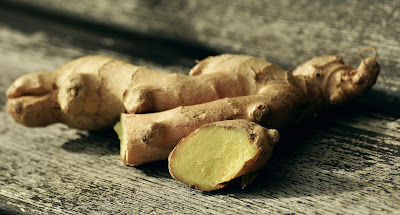Ginger is a root that is commonly used in Asian, Middle Eastern, and Caribbean cuisines. It has a spicy, pungent flavor and is known for its many potential health benefits. Here are some of the potential health benefits of ginger:
Anti-inflammatory properties: Ginger contains compounds called gingerols and shogaols, which have potent anti-inflammatory properties. This makes it a useful supplement for those with inflammatory conditions such as arthritis.
Nausea relief: Ginger has been traditionally used to relieve nausea and vomiting, particularly in those undergoing chemotherapy or surgery.
Improved digestion: Ginger can help improve digestion by increasing the activity of digestive enzymes, reducing bloating and gas, and improving bowel movements.
Lowered blood sugar: Some studies have found that ginger can help lower blood sugar levels, making it a useful supplement for those with diabetes.
Pain relief: Ginger has been shown to help relieve pain, particularly in those with menstrual cramps and osteoarthritis.
Potential weight loss benefits: Some studies have found that ginger may help promote weight loss by reducing appetite, increasing feelings of fullness, and reducing calorie intake.
Both dried and fresh ginger have health benefits, but fresh ginger may be more potent due to its higher content of gingerols and shogaols. However, dried ginger can be more convenient to use and has a longer shelf life. Ultimately, the best choice may depend on personal preference and the intended use of the ginger.


